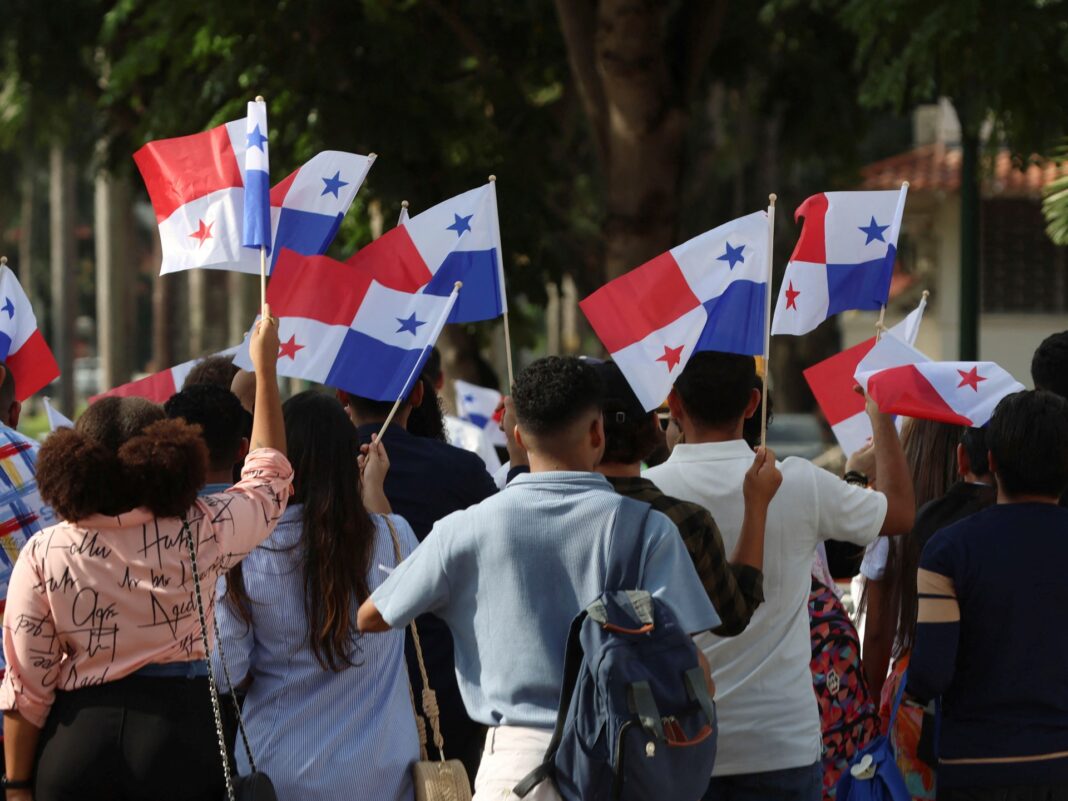Top political leaders in Panama have held a ceremony to mark the 25th anniversary of the return of the Panama Canal after decades of United States control.
But the celebration took place under a pall, as US President-elect Donald Trump continued calls for his country to reassert dominance over the pivotal waterway, which connects the Pacific Ocean to the Caribbean Sea.
Panamanian President Jose Raul Mulino, a right-leaning leader like Trump, was among the speakers at Tuesday’s main ceremony in the capital Panama City.
He reassured spectators that the Panama Canal would remain in his country’s possession, dismissing Trump’s remarks without mentioning the US leader by name.
“There are no hands involved in the canal other than Panama’s,” Mulino said. “Rest assured, it will be in our hands forever.”
But Trump has increasingly pushed for US governance over the canal as part of his broader expansionist rhetoric.
Earlier this month, Trump teased that Canada should become the 51st US state, and he repeated his desire to buy Greenland, an idea he floated during his first term in office.
But as Trump prepares for a second term on January 20, he has alarmed some observers with threats to potentially wrest the Panama Canal back from Panama’s control.
On December 21, in a post on his online platform Truth Social, Trump accused Panamanian officials of exacting “exorbitant prices” for passage in the canal.
The canal allows cargo ships to pass from the Pacific to the Atlantic Ocean without having to navigate all the way around South America, a perilous route that stretches thousands of kilometres.
But the canal has seen increased traffic in recent decades. It has also suffered a severe drought that stymied travel through its system of locks: water chambers that lift boats up and down when the surrounding land is not level.
In his posts, however, Trump indicated that Panama was violating a 1977 agreement that established conditions for the canal to shift from the US to Panamanian hands.
“This complete ‘rip-off’ of our Country will immediately stop,” Trump wrote in the first of two lengthy posts. In the second, he continued with a warning.
“If the principles, both moral and legal, of this magnanimous gesture of giving are not followed, then we will demand that the Panama Canal be returned to us, in full, and without question,” he wrote.
“To the Officials of Panama, please be guided accordingly.”

A history of control
Building the canal through the isthmus of Panama had long been an ambition of Western colonial powers.
In the late 1800s, for instance, the US made overtures to construct the canal in Panama — part of Colombia at the time — but the South American country refused the deal.
When Panama later declared independence, the US quickly supported its secession. The US was the first country to recognise Panama as its own state.
In return for US support, Panama granted the North American country the right to build the canal and oversee the land surrounding it. That area became known as the Panama Canal Zone.
But critics saw the agreement as a violation of Panama’s sovereignty. Ultimately, in 1977, then-US President Jimmy Carter signed two treaties to engineer the return of the canal and its surrounding lands.
That transfer took effect on December 31, 1999, exactly 25 years ago.
Carter died on Sunday, just shy of the anniversary. Mulino paid tribute to the late US president on Tuesday by holding a moment of silence.
In his speech, Mulino described feeling a “mix of happiness for this 25th anniversary” and “sadness” over Carter’s death.

Remembering ‘martyrs’
Tuesday’s celebrations also acknowledged the protesters who died advocating for the canal’s return to Panamanian control.
Among the honoured were the more than 20 participants killed in a student protest on January 9, 1964.
That day, known in Panama as the Martyrs Day, saw students try to raise a Panamanian flag alongside a US one at a high school in the canal zone. Violence erupted, resulting in the deaths of the protesters as well as four US soldiers.
In recent days, Trump has accused Panama of violating the terms of the canal’s return, by allegedly allowing Chinese soldiers to operate the shipping route.
But Panama’s officials have denied that China has any influence over the canal.
Jorge Luis Quijano, who served as the canal’s administrator from 2014 to 2019, was quoted in The Associated Press as saying that Trump has no legal basis for his claims to the canal.
“There’s no clause of any kind in the neutrality agreement that allows for the taking back of the canal,” Quijano said.







